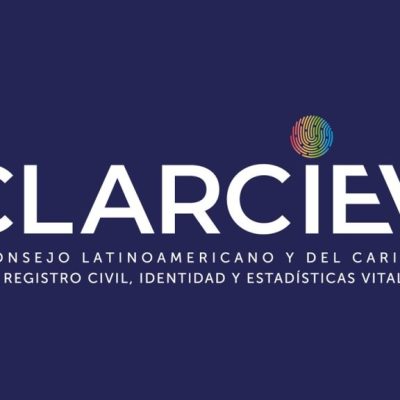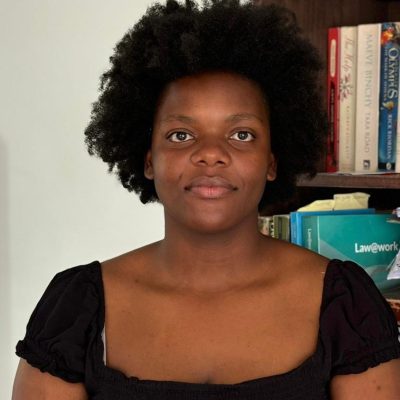Ensuring the Resources to End Statelessness Together
The financial resourcing of statelessness research is one of the most challenging aspects of our work. Funders have heard of many other human right issues but, due to the often-unseen nature of statelessness, it remains an outlier. As a result, it is difficult for donors who are hearing about the issue for the first time to believe that such a problem can exist in the 21st century, let alone get to the point that they are convinced that this is an area that is worthy of their funding support.
As members of the Global Alliance to End Statelessness, we are committed to collaborative, coordinated action. This means helping ensure that we have the financial and other resources needed to catalyse and accelerate positive change. We believe that statelessness is solvable through a well-resourced whole-of-society approach.
The Peter McMullin Centre on Statelessness, which I serve as Deputy Director, is the world’s only university-based centre focused on addressing statelessness through education, research and public policy engagement activities. Due to a generous grant from Peter and Ruth McMullin, the Centre was established seven years ago at the University of Melbourne Law School in response to the deficit in awareness, research and impactful policy engagement on statelessness globally.
The Centre is committed to producing robust, and cutting-edge research. It offers up-to-date teaching and training to scholars and practitioners through its intensive online course, law masters elective and stateless legal clinic. It produces independent, evidence-based analysis to support progressive law and policy reform on nationality and statelessness issues in Australia and the Asia Pacific. The Asia Pacific region hosts the largest known population of stateless people in the world.
We have worked closely within the Global Alliance Taskforce since its inception, and we are incredibly excited about the Global Alliance’s potential to bring together relevant actors to prevent and reduce statelessness more holistically and quickly than ever before.
Working with organisations – from scholars and researchers to governments, and civil society organisations, as well as stateless communities – is critical to ensure that our activities remain relevant and useful, and so that our work can benefit from the richness and nuance that is only possible by adopting an interdisciplinary approach. Sustained, flexible funding is integral to this work, and vital to the promise of finally consigning statelessness to history.
Statelessness affects every facet of a human being’s life and has untold impacts on the communities and countries where it is allowed to persist. Working collaboratively to bring together the expertise and power of advocacy from all sectors of society is absolutely necessary, not only to end statelessness, but to ensure that those who have experienced it, can live fulfilling, dignified and happy lives.
Radha Govil
Deputy Director, Peter McMullin Centre on Statelessness
5 December 2025

Latin American and Caribbean Civil Registration Week: An Initiative Ensuring Identity for All
The Latin American and Caribbean Council for Civil Registration, Identity, and Vital Statistics (CLARCIEV) is the organization behind the campaign “Latin American and Caribbean Civil Registration Week,” held from September 1 to 16, 2025, and which sought to safeguard the fundamental right to identity.
Under the slogan “Latin America and the Caribbean, a region without invisible people: identity for all!”, CLARCIEV intensified its efforts to register births, covering both children and adults who still lacked a birth certificate. As a result of the campaign a total of 32,177 birth registrations were performed.
Read more3 November 2025

One Year On: The Movement’s Journey Within the Global Alliance to End Statelessness
Proximity and privilege deeply shape whose voices are heard in the global struggle to end statelessness. For millions of stateless people, barriers such as geography, limited resources, and lack of access to documentation mean exclusion not only from their governments but also from the global humanitarian and advocacy spaces that claim to represent them. Meanwhile, those with passports and institutional power often move freely within international systems that remain inaccessible to the very people they aim to serve.
Read more18 June 2025

Ensuring Vocational Inclusion for Stateless Individuals
Stateless individuals face daily obstacles in accessing basic services – whether opening a bank account, booking travel, or securing employment. One often overlooked but fundamental barrier is the absence of a “stateless” or “undefined” nationality option in digital forms and application systems. Without it, individuals are frequently forced to enter inaccurate information or abandon applications altogether. Employers, including legal and HR teams, are often unsure how to process applications from individuals without nationality, even when they have the legal right to work. This lack of clarity and inclusion in administrative systems contributes – often unintentionally – to vocational exclusion.
An encouraging step forward came in August 2024, when UNHCR became the first UN agency to update its recruitment platform to accommodate stateless applicants. This progress followed sustained engagement by the stateless-led organization Apatride Network, whose advocacy helped identify and address technical barriers in the application process, that previously prevented stateless people from applying. In collaboration with its legal and human resources teams, UNHCR resolved the dropdown menu issue and clarified internal procedures – creating a more inclusive and accessible path for stateless candidates.
Read more